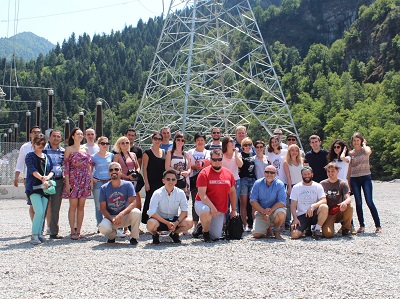Over the past 30 years, Georgia went through a remarkable roller-coaster transition from being one of the best performing USSR republics to a failed state to the top reformer on the post-Soviet space, and thus demonstrating that change is possible. Georgia’s experience of fast-track development and modernization through international cooperation, radical de-regulation and trade liberalization carries important lessons learned for policymakers in other transition and developing nations.
As a leading research and training institution in the South Caucasus, ISET, in partnership with the Embassy of the Czech Republic in Tbilisi and Prague Civil Society Center, is pursuing an opportunity to promote political and economic and good governance reforms in the EU neighborhood countries and the broader CIS region by sharing Georgian reform experience and creating a space for a professional discussion of all outstanding reform challenges facing all countries in the region.
Present, critically assess, and discuss Georgia's development with reformers, civil society activists, independent journalists and policy researchers from the post-Soviet space and beyond, are invited to learn from Georgia's experience (both its successes and failures) of reforming democratic governance, ensuring freedom of the media and independence of the judiciary and law enforcement agencies, provide equal opportunities for its rural population and vulnerable groups, promote gender equality, and find the right balance between business-friendliness and equity.
For this purpose, ISET is holding a 2-week academic adventure in Georgia, during which the participants will be able to meet face-to-face with and hear from Georgia's leading reformers, academics, former and current policymakers, civil society and business leaders, and prominent representative of the international organizations and diplomatic community.
The program will include lectures and multiple interactive formats: debates and panel discussions, visits to strategically important public institutions, businesses, and outstanding cultural, touristic, and industrial landmarks. The working language of the program will be English.
The planned field trips will illustrate the strength of Georgia’s potential as a transport and transit hub connecting landlocked Central Asian countries and northwest China to European markets, and Georgia’s success in attracting foreign investors by unilaterally abolishing any restrictions on inbound tourism and labor migration, creating a friendly business environment, and improving border management.











